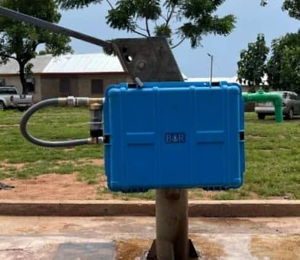Accra, March 3, GNA - CAL Bank says the sharp decline in its share price was not peculiar to the Bank's share alone but was a reflection of the general situation of decreased demand for equities on the Ghana Stock Exchange.
Answering questions at the "Facts behind the Figures" programme on the Ghana Stock Exchange on Friday, Mr Frank Adu Jnr, Managing Director of the Bank, denied reports that shares bought and sold by staff of the Bank had led to the decline in the price of the stock.
CAL Bank share price steadily fell from a high of 3,400 cedis last year to the current level of 1,450 cedis.
Mr Adu explained that the decision of some investors, who sought to realise gains on their stocks led to the over supply of the stock on the market and hence the price decline.
He said the significant decrease in demand of the Bank's shares led to an intense pressure, which affected the price hence the decline. Mr Adu said the shares were sold to the staff at the same price as the initial public offer under the Employee Share Ownership Plan developed in 2001 to serve as a motivation for staff to feel as part of the Bank.
He said currently shares held by staff stood at 14 million shares out of which two million shares had been sold. Mr Adu said even with a price earning ratio of eight, the Bank's stock was the most ideal to hold and urged its shareholders to expect an upturn soon.
Mr Kwasi Tumi, General Manager Operations, said with the ever-increasing competition in the banking sector and steady reduction in margins due mainly to stable macro-economic indicators, the Bank would focus on expanding its retail operations through a roll out of new branches and products to meet the needs of its diverse clientele. The Bank has plans to roll out twelve new branches by the end of 2007. Four have already been established.
Besides, the Bank would continue to enhance its service delivery process through continuous staff training; more innovative products and enhanced services would be developed to meet the needs of its corporate, retail and the small and medium scale sectors.
He said as part of the continuing efforts, the Bank would continue to deploy Automated Teller Machines (ATM) both on site and off-site. Steps had already been taken to join the VISA platform and the National Switch by the end of the year.
Mr Tumi said the Bank would also improve on its foreign exchange inflow through collaborations with international remittance agencies. Other programmes included enhancing service delivery process through continuous staff training, improving risk management and recovery process and modifying the organisational structure to enhance efficiency.
The Bank made profit after tax of 28 billion cedis down from 30.1 billion cedis in 2004, mainly due to increased taxation. The Bank's capital adequacy ratio stands at 21.9 per cent far above the minimum legal requirement of 10 per cent. 3 March 06
Business News of Friday, 3 March 2006
Source: GNA






![Ibrahim Mahama [L] and Okatakyie Afrifa-Mensah Ibrahim Mahama [L] and Okatakyie Afrifa-Mensah](https://cdn.ghanaweb.com/imagelib/pics/352/35297352.295.jpg)









